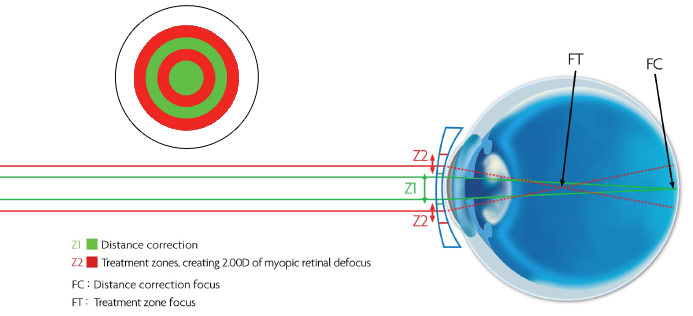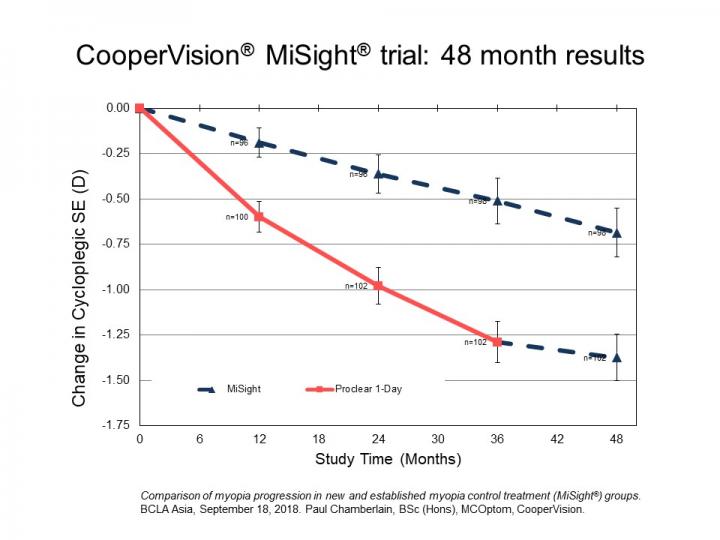by Patrick Ng
Optometrist
Msc Clinical Optometry
28th April 2023

This article is targeted at readers who already have read about myopia control options such as atropine, DIMS lenses (Miyosmart) or myopia control lenses. If you have yet to read about those, it may be better to read about those lenses in the same blog first, before reading this article.
In the last 2 years, it has been our observation that Miyosmart lenses ( DIMS technology) when used in combination with low dose atropine has better results than atropine or Miyosmart standalone. However, we did not take the effort to do a statistical review of records. But the improvement in slowing down myopia progression is noticeable. The ophthalmologists are also noticing that too.
A European myopia control study consisting of 146 kids was concluded in Feb 2023. The study aimed to compare the efficacy of low dose atropine vs DIMS lens vs dual therapy (low dose atropine+ DIMS lens) vs control ( no therapy). The study concluded that dual therapy is the most effective at slowing myopia progression. Both Atropine and DIMS has also slowed myopia progression significantly compared to no treatment. This study confirmed what the industry have noticed with monotherapy vs no therapy and in cases of rapidly progressing myopia, with dual therapy against single therapy.

https://journals.plos.org/plosone/article?id=10.1371/journal.pone.0281816
With the findings from this study, we will be more confident to recommend children who have the potential to be highly myopic to start with dual therapy from the onset. Prior to this study, we have erred on the side of caution and start them on monotherapy ( either atropine or DIMS).
It does not mean that every child will need to go through dual therapy. Children with a later onset of myopia or a slower myopia progression will do well enough with a mono therapy. The challenges of dual therapy is that with atropine, even on a lower dose, may result in photophobia due to a slight dilation of the pupils. We had to make do with caps/hats or even clips on sunglasses. But these methods require the child to remember putting them on whilst outdoors.
Miyosmart has now launched Miyosmart SUN. The same DIMS technology, now with photochromatic technology. This means that under the sun, these lenses will change to a darker shade to reduce glare. This makes dual therapy a lot easier for parents and a lot more comfortable for the children. During this launch, HOYA has also announced that regardless the type of lens, Miyosmart or Miyosmart Sun, there will be no price difference! This is quite surprising, as traditionally, photochromatic lenses cost at least 100-200 dollars more than their non photochromatic version. The reason given by the management was that they realized that their lenses was helping a lot of children globally with myopia control, hence for kids for needed dual therapy, they do not want cost to be the deterrent. Sweet!
Speak to your pediatric ophthalmologists or optometrists about your child suitability for dual therapy myopia control. Alternatively, speak to us over WhatsApp @ +6587256911 or email precisionoptics2013@gmail.com




